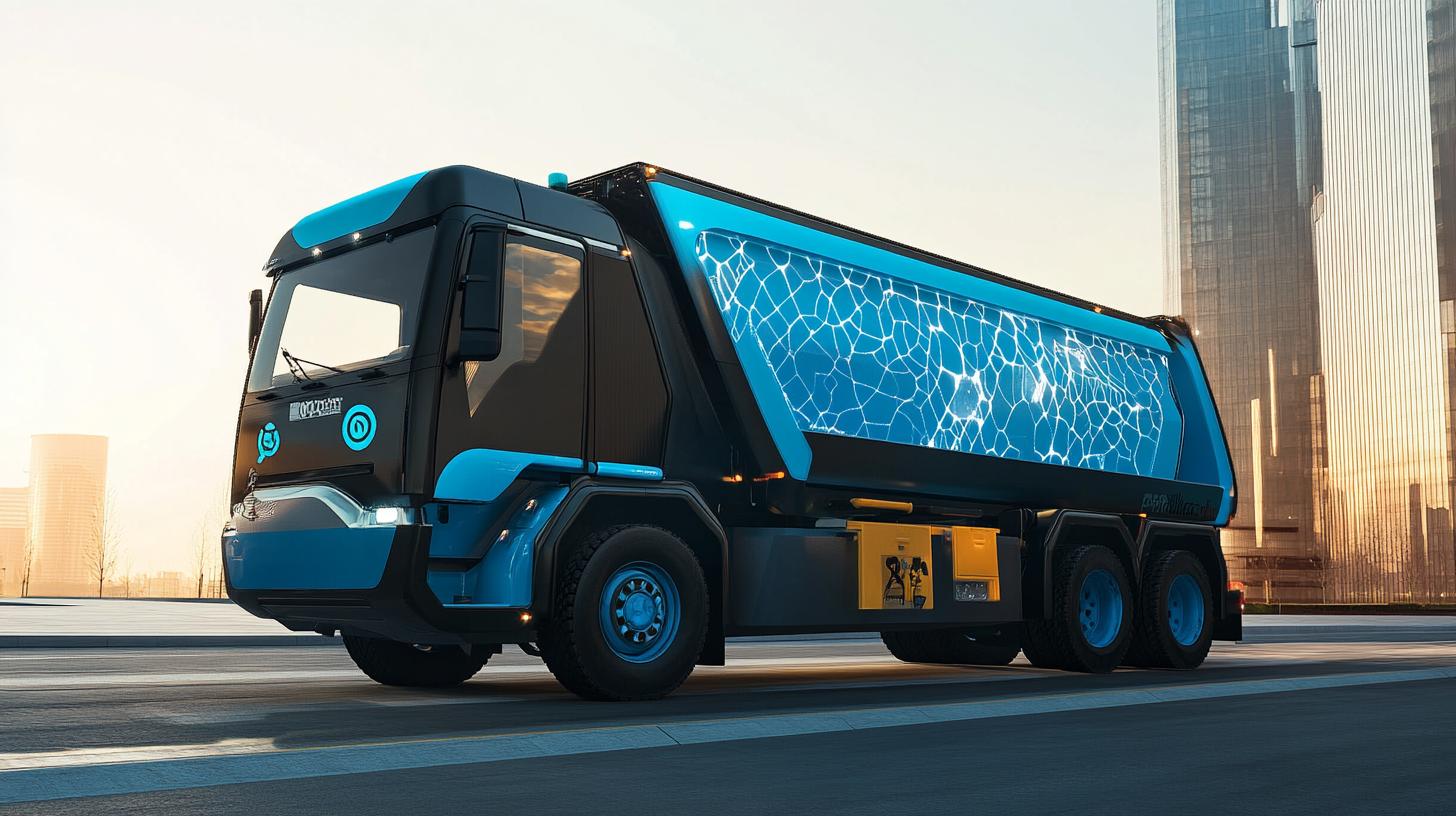In a groundbreaking move for sustainable transportation, GreenWaste has taken the lead in North America by adding 12 hydrogen-powered refuse trucks to their fleet, thanks to the pioneering technology of Hyzon. With a commitment to environmental stewardship, GreenWaste has partnered with Hyzon to introduce these first-of-their-kind vehicles, signaling a new era for waste management.
Hyzon is renowned in the industry for its cutting-edge hydrogen fuel cell systems. The company recently launched production of a game-changing 200-kilowatt single-stack fuel cell system, poised to revolutionize commercial vehicle manufacturing by allowing for the mass production of fuel cell systems. In this strategic collaboration, Hyzon is equipping GreenWaste with refuse collection trucks that promise zero emissions, aligning with GreenWaste’s ambitious sustainability objectives.
The innovative refuse trucks are a crucial component in GreenWaste’s roadmap to significantly cut greenhouse gas emissions by 45% by 2030, following their impressive 2023 milestone of a 36.3% emission reduction from 2022 levels. GreenWaste rigorously tested Hyzon’s vehicles across various routes in the Bay Area, confirming their capability to handle heavy payloads and lengthy routes with efficiency and reliability.
Tracy Adams, GreenWaste’s CEO, emphasizes the company’s legacy of sustainability. Having previously set a precedent with the world’s first large-scale electric side-loading waste truck nearly a decade ago, GreenWaste’s latest venture into hydrogen vehicles underscores its dedication to pioneering environmentally friendly waste collection methods. This initiative not only marks a vital advancement in clean energy utilization but also cements GreenWaste’s position as a leader in innovative recycling and resource recovery.
The Hidden Side of Hydrogen-Powered Trucks: What You Didn’t Know
In the world of sustainable innovation, the introduction of hydrogen-powered refuse trucks by GreenWaste in North America, in partnership with Hyzon, marks a notable step forward. While this initiative is undeniably a leap toward reducing emissions within the waste management industry, it ushers in various lesser-known implications that could impact individuals, communities, and even whole nations.
Could Hydrogen Trucks Fuel Energy Independence?
One of the most intriguing aspects of hydrogen-powered vehicles is their potential to reduce dependency on fossil fuels. By shifting towards hydrogen, communities could tap into a locally sourced energy alternative. Countries rich in natural resources capable of producing hydrogen through electrolysis, such as nations with abundant wind or solar energy, could find themselves in a position of new energy independence. This could be particularly transformative for economies previously reliant on oil imports.
Will Hydrogen Infrastructure Keep Pace?
Despite the enthusiasm, infrastructure remains a critical barrier. The transformation of the energy landscape with hydrogen technology requires a robust network of refueling stations. Presently, this network is sparse, raising questions about logistical feasibility for widespread adoption. Communities might wonder: Is investment in infrastructure proportionate to the anticipated benefits, or could funds be better allocated elsewhere?
Environmentally Friendly or Just a Mirage?
While hydrogen trucks emit zero tailpipe emissions, the process of producing hydrogen, often through methods like steam methane reforming, can be environmentally taxing. This production method raises a crucial question: Are we truly moving towards sustainability, or merely shifting emissions upstream? Advocates of a green hydrogen approach, which uses renewable energy sources, argue that this is where the real environmental payoff lies, but significant investment is needed to transition fully.
Economic Boon or Bust?
The economic implications of a hydrogen-based future are multifaceted. Could this new technology lead to job creation in the burgeoning yet niche field of hydrogen production and vehicle maintenance? Or might it render current skills obsolete, leading to economic displacement in traditional energy sectors? Policymakers and industry leaders must weigh these complex scenarios carefully as they plan for a workforce transition.
How Safe is Hydrogen Anyway?
The safety of hydrogen as a fuel is frequently debated due to its high flammability. While advancements in technology have managed to mitigate risks effectively, public perception often lags behind technological progress. Ensuring widespread acceptance requires transparent communication on safety protocols—a topic that continually sparks debate among safety experts and skeptics alike.
What Lies Ahead?
Looking forward, one question prevails: How will regulatory bodies support or inhibit the proliferation of hydrogen technology? Supportive policies and incentives could accelerate adoption, but regulatory uncertainty may hinder investment and innovation in this burgeoning sector.
For further exploration into sustainable innovations, energy independence, and the future of green technology, visit BBC.com and Reuters.com.


